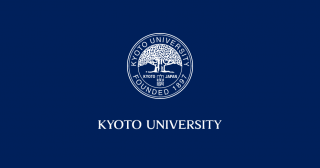The Mekong is a transboundary river that flows through multiple countries. Development activities in its headwaters, which lie within China, are now having a significant impact on the midstream areas -- comprising Laos, Thailand, and Cambodia, -- and on downstream Vietnam in the form of changes in flow volume, sediment dynamics, and ecosystems, as well as salinization of groundwater in the Delta. These changes have given rise to multilateral conflicts over water management issues and are likely to be compounded by the effects of global warming, such as changes in precipitation and rising sea levels.
The international exchange course, "Conflict Management (Global Water Issues)", focused on sustainability in Vietnam in general and in the Mekong Delta in particular in seeking to gain an understanding of these water management issues and the challenges involved in addressing them.
Led by Professor Tetsuya Sumi and Associate Professor Sameh Kantoush of the Disaster Prevention Research Institute (DPRI), the course comprised three pre-lectures, held in Japan, followed by a study trip to Vietnam from the second to the eleventh of September, so as to provide an excellent balance of coursework, hands-on fieldwork, and cultural immersion.
The Vietnam program began on the Ho Chi Minh Campus of Thuy Loi University (Water Resources University), where the four participating Kyoto University students -- second- and third-year undergraduates -- received lectures on "Water Resources Management on the Mekong River" and "Climate Change Impacts and Adaptation Measures". The students then toured Ho Chi Minh City suburbs to observe canal locks and floodgates for storm surges.
Next, the group moved to Can Tho University, located in Can Tho City at the center of the Mekong Delta, and attended lectures on "Sustainable Development in the Mekong Delta" and "Climate Change Impacts on the Mekong Delta". The participants also toured coastal areas, visiting a shrimp farm and an erosion site as well as an island near the river mouth.
Finally, back at Thuy Loi University, the students took part in a workshop alongside local counterparts. The four Japanese students delivered English presentations, each addressing one of the four topics: climate change impacts, agriculture, water management and disease control, and the role of the Mekong River Commission in watershed negotiations and the challenges involved. These were followed by presentations by the Vietnamese participants on the same topics, leading to animated discussion.
After the presentations, a cultural exchange program, in which the Vietnamese students performed ethnic dances and the Japanese group sang "Shima Uta", resulted in new friendships being made.
Through the Vietnam program, the participants from Japan obtained the kind of international perspective expected of KU students through studying local history, culture, industry, and lifestyles, and examining how the significant environmental changes resulting from upstream watershed development and climate change are impacting water management along the Mekong River. In addition, they came away with lasting memories of delicious Vietnamese cuisine and tropical fruits as well as the beautiful Mekong sunset.

Making friends

Tropical fruits at the floating market

Sunset on the Mekong River

Vietamise ethnic dance

Singing "Shima Uta"

Presentation at Thuy Loi University

Field visit to the Mekong Delta (countermeasures for coastal erosion)

Landscape of an island near the river mouth (with cattle in the background)

Ho Chi Minh Campus, Thuy Loi University

Can Tho University





